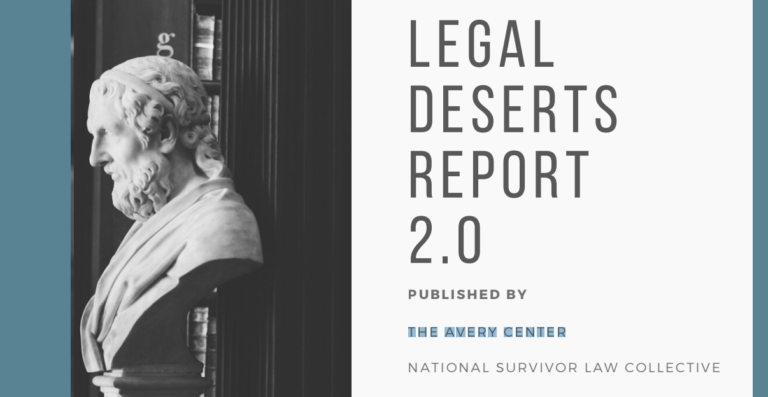In July 2021, The Avery Center and the National Survivor Law Collective (NSL Collective) co-authored the first Legal Deserts Report to depict the landscape of legal services for survivors of trafficking. Specifically, The Avery Center’s research team conducted extensive outreach to 550 organizations that self-advertised as providing legal services for survivors of sex trafficking. Only 110 organizations responded, and of those, only 16 organizations actually confirmed offering direct legal services and representation specific to human trafficking survivors.[1] The resulting data was both troubling and clear: most of the United States is a legal desert for survivors of trafficking. Since the illumination of this dire need, The Avery Center and the NSL Collective have convened a diverse cohort of stakeholders from the anti-trafficking movement to discuss current obstacles to comprehensive legal services for survivors of sex- and labor-trafficking and root causes of the challenges that survivors face.[2] The discussion also included solutions and opportunities to overcome these challenges.The remainder of this report is a comprehensive overview of the findings and discussions from these meetings. This report offers information that will empower practitioners, funders, and members of the public to better understand and mitigate the obstacles that exist for survivors seeking legal services.

